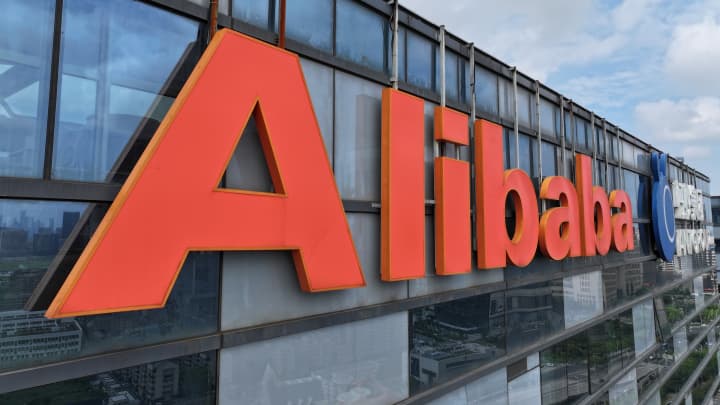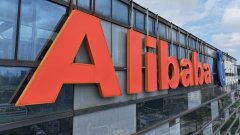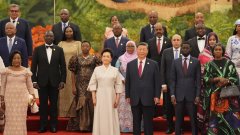
has completed a three-year regulatory "rectification" process following an antitrust fine it received on charges of monopolistic practices in 2021, China's market regulator said on Friday.
Shares of Alibaba rose nearly 3% in Friday's trading session.
On Friday, China's State Administration for Market Regulation, or SAMR, said that, over the past few years, it has been supervising Alibaba's process to become compliant with antitrust regulations. The rectification work has achieved "good results," the SAMR said, according to a Google-translated statement.
In 2021, as part of an anti-monopoly investigation into the tech giant. The regulator's focus was on a practice that forces merchants to choose one of two e-commerce platforms, rather than being able to work with both.
At the time, the regulator said the "choose one" policy and others allowed Alibaba to bolster its position in the market and gain unfair competitive advantages.
Since that fine, the SAMR has been supervising Alibaba as it gets in line with the regulator's requirements. Alibaba has now completed this process and has stopped the "'choose one of two' monopoly behavior," the SAMR said Friday.
The SAMR said it will now guide Alibaba to continue to improve its compliance and efficiency and to accelerate innovation.
The conclusion of the regulatory overhaul will help put one of Alibaba's worst run-ins with Beijing behind it. Jefferies analysts said in a note Friday that the conclusion of the regulatory process was a "positive" for the company, which "highlights this is a new start and ensures compliance in operations."
But the regulator's announcement could also signal the from Chinese regulators toward private technology firms, following an intense crackdown that began at the end of 2020. At the time, Beijing enacted several regulations and moves that aimed to restrict the power of domestic technology firms in areas ranging from antitrust to gaming.
The empire of Alibaba founder Jack Ma has been in the spotlight over the past few years since regulators . Ant Group itself also underwent a regulator-supervised rectification process, with most of the major issues resolved by last year.
Regulatory concerns have been an overhang on the Alibaba stock, which has fallen more than 70% from its peak in 2020. More recently, the company has been dealing with slow growth amid rising competition in the e-commerce space in China, as well as contending with a cautious Chinese consumer.
The tech titan in the June quarter, as cloud computing revenue reaccelerated and transactions via its e-commerce platforms looked healthy.
— CNBC's Christine Wang contributed to this report.




